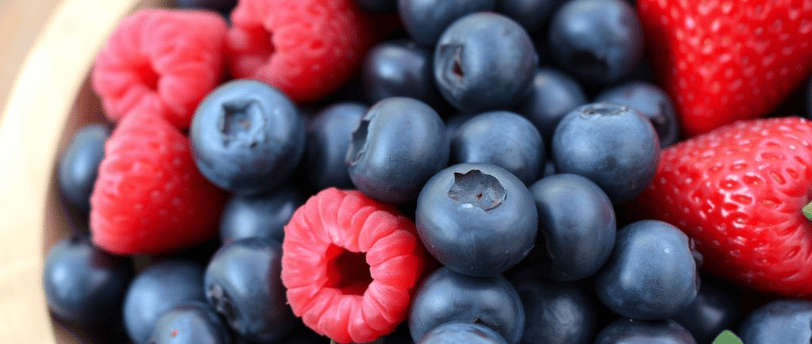Eat More Berries – Blueberries, Strawberries, and Raspberries Are Packed with Heart-Protective Antioxidants
🧘WELLNESS TIPSHEART HEALTH & CIRCULATION❤️


In the realm of health and nutrition, the phrase "an apple a day keeps the doctor away" is often cited as a guiding principle. However, emerging scientific evidence suggests that berries might be the new superheroes of the fruit world, particularly when it comes to heart health. Blueberries, strawberries, and raspberries are not only delicious but are also packed with heart-protective antioxidants that can significantly benefit cardiovascular health. This article delves into the scientific research behind these berries and why incorporating them into your diet can be a wise choice for maintaining a healthy heart.
The Power of Antioxidants
Antioxidants are compounds that help neutralize harmful free radicals in the body. Free radicals are unstable molecules that can damage cells, leading to inflammation and various diseases, including heart disease. The antioxidants found in berries, such as flavonoids, anthocyanins, and vitamin C, play a crucial role in reducing oxidative stress and inflammation, both of which are major risk factors for heart disease.
Blueberries: The Tiny Giants of Heart Health
Blueberries are often referred to as a superfood, and for good reason. Scientific evidence has shown that blueberries are particularly rich in anthocyanins, which give them their deep blue color and are known for their potent antioxidant properties. A study published in the Journal of the American Heart Association found that regular consumption of blueberries can lower the risk of heart disease by improving blood pressure and reducing arterial stiffness. Another study in the Circulation journal reported that women who consumed three servings of blueberries and strawberries per week had a 32% lower risk of heart attack compared to those who ate them once a month or less.
Strawberries: Sweet and Beneficial
Strawberries are another berry that should be a staple in your diet if you're concerned about heart health. These sweet, red fruits are rich in ellagic acid and other polyphenols, which have been shown to have anti-inflammatory and anti-atherosclerotic effects. Atherosclerosis, the buildup of plaque in the arteries, is a leading cause of heart disease. A study published in the American Journal of Clinical Nutrition found that consuming strawberries can improve lipid profiles and reduce markers of oxidative stress and inflammation, thereby lowering the risk of atherosclerosis.
Raspberries: A Berry with a Bite
Raspberries, with their tart yet sweet flavor, are also a powerhouse of heart-protective antioxidants. They are particularly high in ellagic acid, which has been shown to have anti-cancer and anti-inflammatory properties. Raspberries also contain a significant amount of dietary fiber, which can help lower cholesterol levels. A study in the Journal of Nutrition demonstrated that raspberries can improve endothelial function, which is crucial for maintaining healthy blood vessels and preventing heart disease.
How to Incorporate Berries into Your Diet
Eating more berries doesn't have to be a chore; in fact, it can be quite enjoyable. Here are some simple ways to incorporate these heart-protective fruits into your daily diet:
Morning Smoothies: Blend a mix of blueberries, strawberries, and raspberries with some yogurt or almond milk for a refreshing and nutritious breakfast.
Snacks: Keep a bowl of fresh berries on your kitchen counter or in the fridge for a quick and healthy snack.
Salads: Add a handful of berries to your salads to enhance flavor and nutritional value.
Desserts: Use berries to top your desserts, such as pies, cakes, or even a simple bowl of Greek yogurt.
Tea: Infuse your tea with dried berries or use them to make homemade iced tea for a healthful beverage.
Conclusion
Scientific evidence overwhelmingly supports the idea that including blueberries, strawberries, and raspberries in your diet can have significant benefits for heart health. These berries are not only rich in antioxidants but also provide a host of other nutrients that can help reduce the risk of heart disease. By making these small, tasty fruits a regular part of your meals and snacks, you can take a proactive step towards maintaining a healthy heart. So, the next time you're at the grocery store, don't forget to fill your basket with a variety of berries—your heart will thank you for it.
